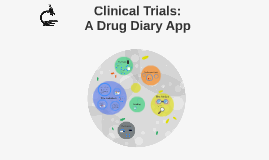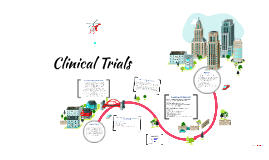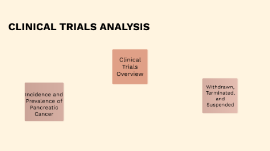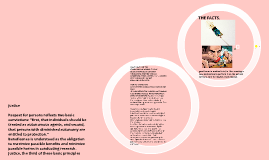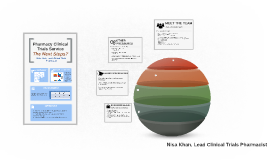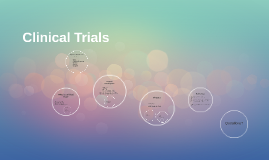clinical trials
Transcript: clinical trials is a positive, or negative way to help patients get a match for survival. ..during clinical trials there will be diagnosis being done to donors, such as those who participate to donate an organ for someone else, but if the person is not compatible like the swab test, then they will be denied even if they went through pain and donated. procedures in clinical trials may include,hernia replacement,heart surgery or bone marrow surgery. etc.... participants can have positive or negative side effects after any type of procedures being processed. Clinical trials are studies that use humans to test medical treatments. These studies are frequently registered with the Food and Drug Administration (FDA). PROTOCOL A STUDY PALN ON WHICH CLINICAL TRIALS ARE BASED. BASICALLY DESCRIBES WHAT TYPE OF PEOPLE CAN PARTICIPATE IN THE TRIAL, SUCH AS PROCEDURES, MEDICATION AND THE DOSAGE THE PATIENT NEEDS TO TAKE according TO THEIR TYPE OF CONDITION. participants ARE SEEN REGURLARILY BY A RESEARCH STAFF TO monitor THIER HEALTH AND TO DETERMINE THE SAFETY AND EFFECTIVENESS OF THEIR TREATMENT. DO NO HARM I THINK THAT IT MEANS PREVENTING RISKS AND HAZARDS TOWARDS A PATIENT. AND THEIR POTENTIAL BENIFITS. .FIRST MUST MEET THE STANDARDS,AGE,GENDER,TYPE OF DISEASE,PREVIOUS OR CURRENT MEDICATIONS,EXISTING MEDICAL CONDITIONS. THESE ARE THE criteria LOOKED AT IF YOU QUALIFY OR NOT. WHO CAN PARTICIPATE? .HOW TO PARTICIPATE COMPLETE THE CLINICAL TRIAL PARTICIPANT FORM. -IF YOUR INTERESTED YOU WILL GO THROUGH A SCREENING PROCESS. WHICH INVOLVES A SERIES OF QUESTIONS.To determine if you meet all of the requirements for a clinical trial, a physical examination is usually conducted during the screening process. This exam may include: Measurement of your height, weight, temperature and blood pressure A test that records the electrical activity of your heart, known as an electrocardiogram Blood and/or urine samples Other diagnostic tests required by the clinical trial protocol All of the information obtained during the screening process is kept secure. If you qualify for the clinical trial, you will be contacted by the site staff to schedule any trial-related clinic visits and discuss your participation in more detail. Your participation is completely voluntary. So, even if you decide to enroll in a clinical trial, you are free to leave the trial at any time, for any reason. justice Respect for persons reflects two basic convictions: "first, that individuals should be treated as autonomous agents, and second, that persons with diminished autonomy are entitled to protection." Beneficence is understood as the obligation to maximize possible benefits and minimize possible harms in conducting research. Justice, the third of these basic principles Quiz 1.WHAT IS A CLINICAL TRIAL? 2.WHY PARTICIPATE IN A TRIAL? 3.WHAT QUESTIONS WOULD YOU ASK BEFORE PARTICIPATING? risks and benefits. Before enrolling in any study, it is important to know which of the three phases the treatment is in, to get an official report of the study, and to know the background of the institute or company conducting the clinical trial. Pharmaceutical companies have been known to take unnecessary risks with humans in order to get their drugs to market. Be careful, and do your research. clinical trials what questions should a person ask whether or not to participate in a trial. . what are my treatment options? .how will treatment on a clinical trial affect my prognosis. .what are the potential short-term and long-term side effect. . what procedures will be billed to me or my insurance. good harm in medical trial, is like creating a new medication to perform it on the patient to find a cure for maybe a bad disease. THE FACTS .CLINICAL TRIALS ARE RESEARCH STUDIES THAT TEST HOW WELL NEW MEDICAL APPROACHES WORK IN PEOPLE. .CAN RESULT IN MALFUNCTION AS I PRESENTED IN THE PREVIOUS VIDEO. THE FACTS. risks and benefits GOOD HARM THE MEDICATION WORKING PROPERLY AND CURING THE PATIENT. SATISFACTURY SURGERY. DOCTORS PRODUCING THE BEST DATA AVAILABLE FOR HEALTH CARE DECISIONMAKING... KNOW THE RISKS OF DIESEASE. bi ps u all you teachers are dumbasses clinical trials! participating to cure people who have cancer. GOOD HARM AUTONOMY .DISCOVERING WHAT IS RIGHT FOR THE PATIENT. .SELF GOVERNING OF THE RIGHT .PERSONAL LIMITATIONS. EXAMPLES. HONESTY AND TRUTHFULNESS. EVEN IF IT'S TOUGH AND IT WILL HURT THE PATIENT. .PROVIDING CONFIDENTIALITY. .BE compassionate IS THE KEY. .autonomy is experimenting medicine with a patient to see if the medication works properly. like in this video.






